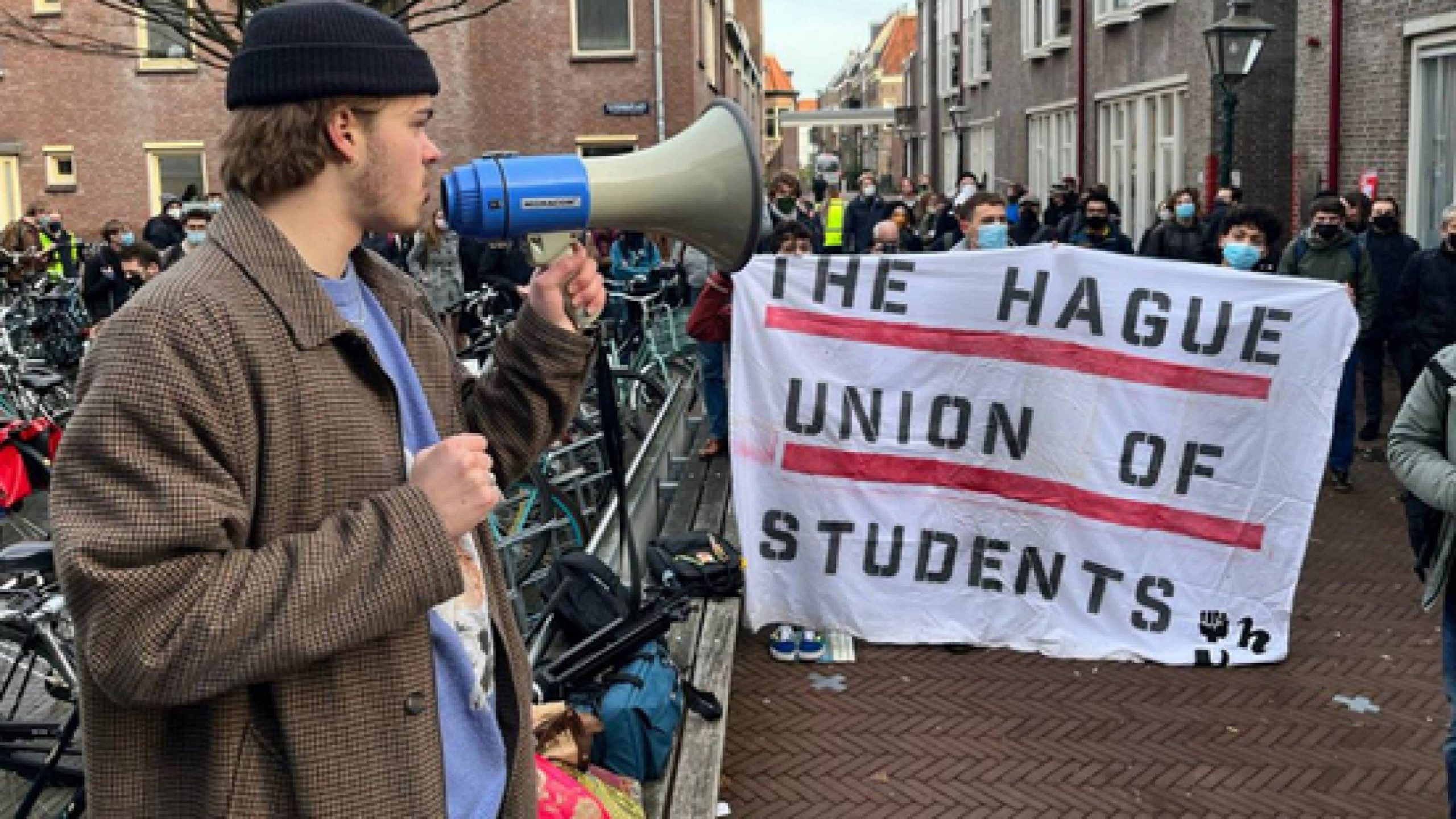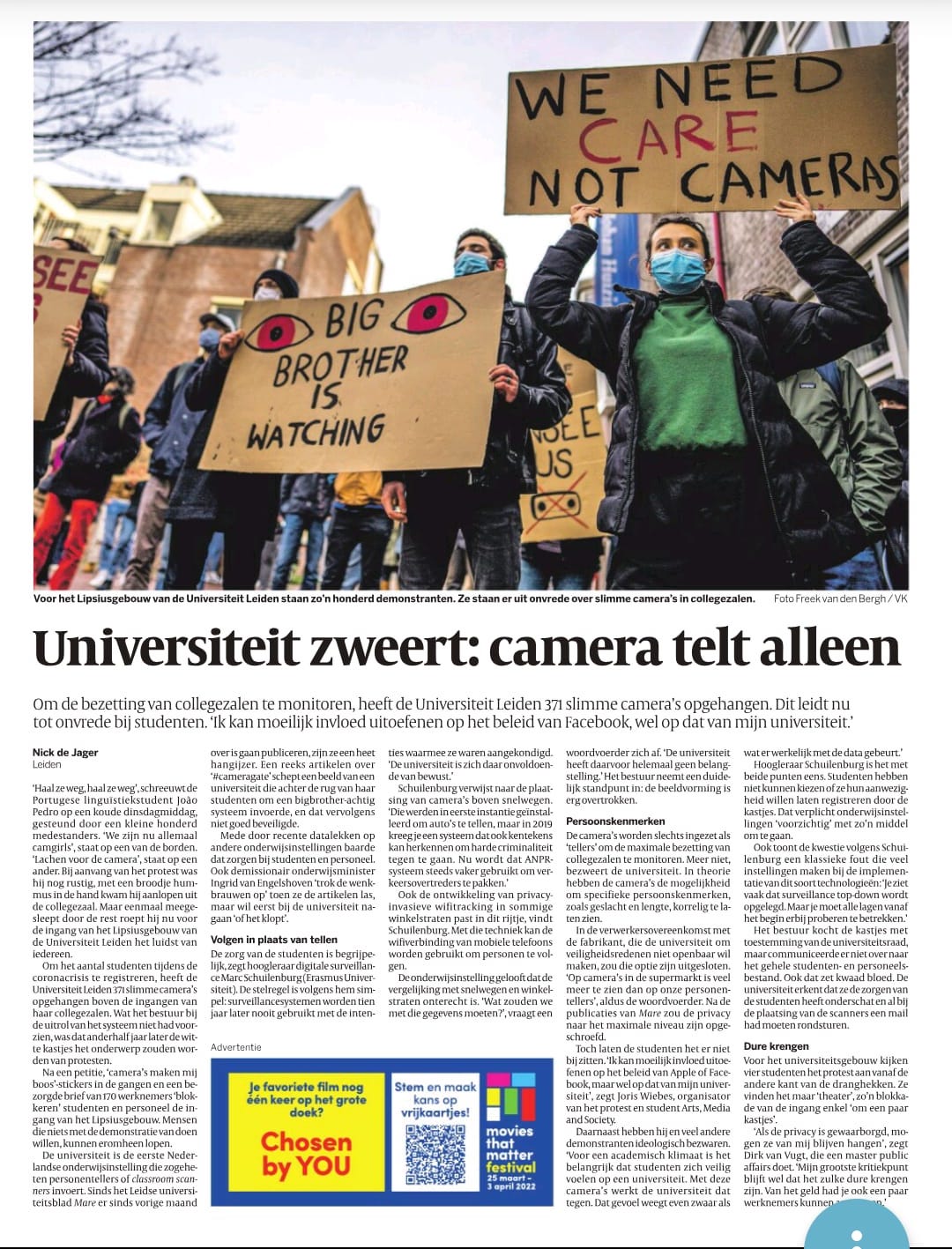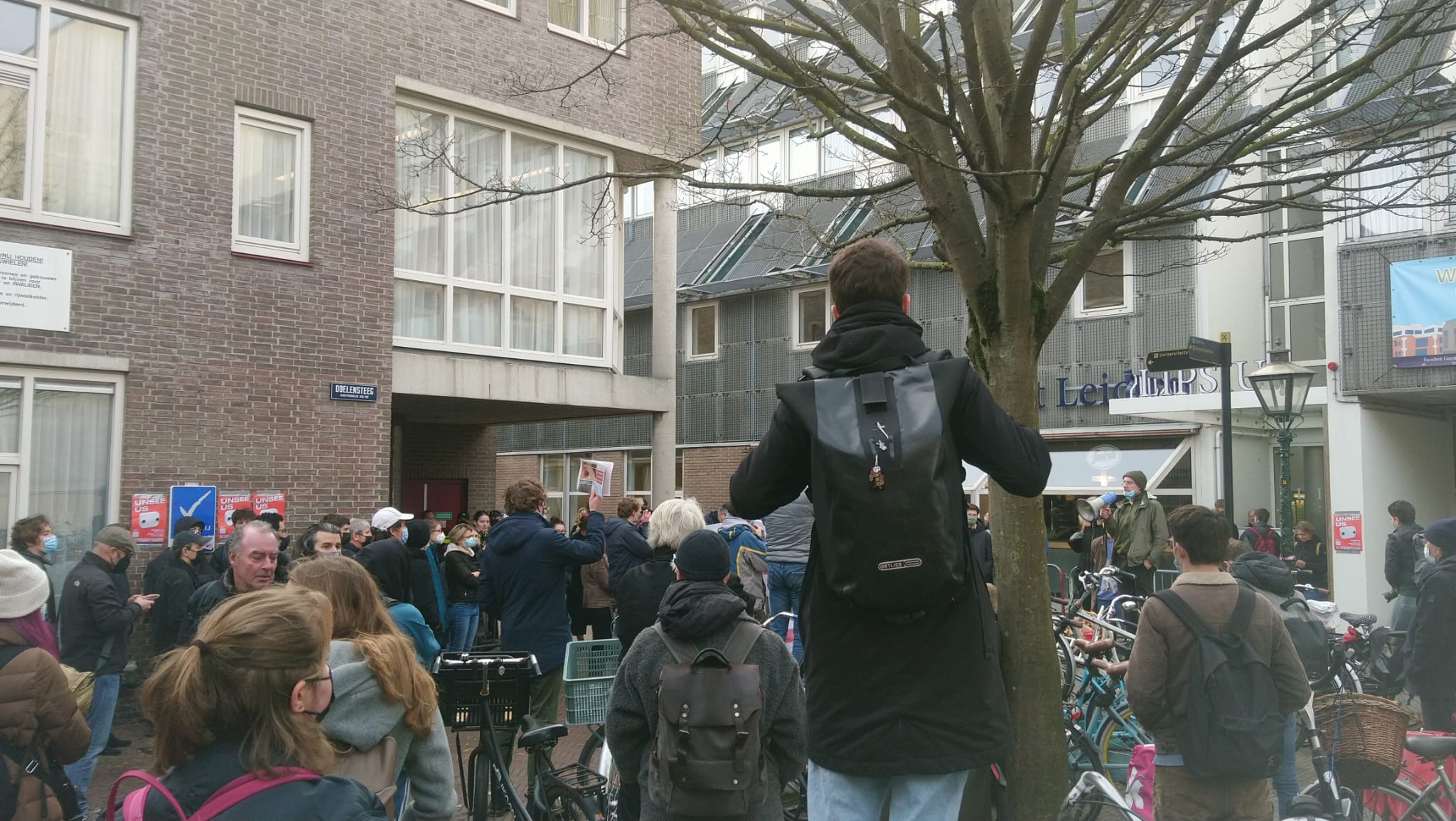First day of protest: Leiden University students and faculty against the smart camera ‘Overkill System’ #Unseeus #Cameragate
Posted: December 8th, 2021 | Author: unseeus | Filed under: News | Tags: Actions, Leiden | Comments Off on First day of protest: Leiden University students and faculty against the smart camera ‘Overkill System’ #Unseeus #Cameragate
Photo credit: Omroep West https://bit.ly/3dyWn0m
On Tuesday 7 December afternoon, students and faculty of Leiden University gathered on the Cleveringaplaats in front of the University’s Lipsius building to protest the university’s installation of 371 ‘smart cameras’ at the purchase cost of over €200,000. These are being used to count people present in classrooms and buildings across Leiden University.
The protest, which gathered approximately 100 students and staff, lasted one hour, from 13:00 to 14:00. It was covered in national news by major outlets like the NOS, Nu.nl and the Volkskrant. A second protest is being organized for the 14th of December at 3:30 pm at the Wijnhaven building, part of Leiden University’s campus in the Hague.

The first cameras were placed during the lockdown last year, when access to University buildings was strictly limited. While the University Council had agreed to the installation of ‘classroom scanners’, not enough information was given to the Council about the functionality of the smart cameras, according to Professor Remco Breuker, who represents staff in the Council for the FNV. The University had assured the Council that the ‘scanners’ would ‘record no personal data’ according to the article in Mare which exposed the affair.
In fact, the cameras can collect sensitive biometric data such as the height and sex of people it records. The manufacturer Xovis even uses the slogan “way more than people counting”. And, while the university now insists that the smart cameras are set to the maximum privacy setting, former Leiden University student Emiel Beinema has shown that the cameras were at some point set to the lowest or second lowest levels. The cameras were also vulnerable to hacking, shown by both Beinema and ethical hacker Sijmen Ruwhof, who was contacted by Mare, although the University insists that these vulnerabilities have now been addressed.

Photo credit: Ruben van de Ven
One of the student organizers of Tuesday’s protest, Joris Wiebes, pointed out in a report on the protest by Omroep West that one of the problems of the cameras is not just how they are used but their potential capabilities. Associate Professor Francesco Ragazzi, a specialist of smart technologies in the field of security, agrees. “If what the university wants is only people counters, there are cheaper products with less functionalities. Why did they buy these cameras if they never plan to use the other functionalities?” he asks.
Moving from the limited use of smart technology to more extensive use is common, and is referred to in surveillance studies as the ‘function creep’ problem. It is this ‘creep’ that worries Assistant Professor Hilde van Meegdeburg most, a protester who spoke to Omroep West. Professor Marc Schuilen (Erasmus University) underlines the same point in an article on the protest in the Volkskrant: ‘ten years after they are installed, the use of surveillance systems is never limited to what was initially announced’.
Prior to Tuesday’s protest, 166 colleagues of the Faculty of Social and Behavioural Sciences have jointly sent a letter to the dean of the faculty raising their concerns. This letter raises the worry that the smart cameras may be in violation of the strict privacy rules of the General Data Protection Regulation (GDPR), a worry echoed by computer security Professor Bart Jacobs of Radboud University in the original Mare article, who refers to the smart cameras as an ‘overkill system’.
Despite attempts to defuse tensions with an email to all staff and students, and to deflect criticism by lashing out at the Mare for supposedly misleading readers with a photograph (that was published with a credit to the Mare photographer), faculty and staff remain disturbed both by the secretive manner the smart cameras were installed, their privacy-invasive functionalities, the absence of adequate consultation, and the subsequent misleading communication. Protesters on Tuesday called for the University to take down the cameras. Clearly unsatisfied with the University’s response so far, some students have already moved to direct action, placing stickers over the smart cameras to prevent their functioning.
Article written by Tom Theuns